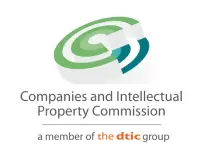HELP FOR YOUR BUSINESS
| Type | Entity | Why |
|
Companies Act |
Companies and Intellectual Property Commission (CIPC) | The Companies Act stipulates several rules for the appointment, resignation, removal, obligations and duties of directors. Duties include both a fiduciary duty, and a duty of reasonable care, which operate in addition to existing common law duties. |
|
Auditing Requirements |
Companies and Intellectual Property Commission (CIPC) | The new Companies Act, which came into effect on 1 May 2011, introduced different levels of assurance for different categories of companies. All public and state-owned companies require an audit. Private, personal liability or non-profit companies, however, only require an audit when it’s in the public interest,as indicated by prescribed criteria such as the value of the company’s turnover or assets |
|
Employee Tax |
South African Revenue Services (SARS) |
An employer, as an agent of government, is required to deduct employees’ tax from the earnings of employees and pay the amounts deducted over to SARS on a monthly basis. This employees’ tax is not a separate tax but forms part of the Pay-As-You-Earn (PAYE) system. |
| Value Added Tax (VAT) | South African Revenue Services (SARS) |
|
| Financial Intelligence Centre Act (Fica) | BANK requirement |
South Africa has adopted money laundering laws to help it comply with its international obligations to fight organised crime and terrorism. Fica creates money laundering control obligations for banks and other institutions and professionals, such as estate agents, brokers, attorneys and insurance companies. |
| Unemployment Insurance Fund (UIF) | UIF | If you have employees who are employed by you for more than 24 hours per month, you are required by law to register with the Unemployment Insurance Fund (UIF) and contribute towards the Fund. You must deduct and contribute one percent of your worker’s gross salary per month, as must your employee. The total contribution is two percent of the worker’s gross remuneration |
| Workmen’s Compensation | Workmen’s Compensation Fund | All registered employers pay an annual assessment fee based on their workers’ earnings and work related risks. Employers who register for and pay their annual Workers Compensation fees are protected from being sued by employees who are injured at work. Employees are protected from financial loss if they are injured at work. |
|
Compensation for Occupational Injuries and Diseases Act (COIDA) |
Department of Labour | COIDA applies to all employers, and casual and full-time workers who, as a result of a workplace accident or work-related disease, are injured, disabled, or killed or become ill. |
| Skills Development Levy | South African Revenue Services (SARS) | Employers must pay 1% of their workers’ pay to the skills development levy every month. The money goes to Sector Education and Training Authorities (SETAs) and the Skills Development Fund to pay for training |
|
Industry Registration
|
SACCI South African Chamber of Commerce and Industry |
Depending on the sector you are in, you may be required by law to register with an industry association. The benefits of doing so are several: you gain increased customer confidence; you contribute to uplifting standards; and you adhere to a specific set of standards set by the body in your own work. |
|
Zoning
|
Provincial and local government | Property zoning is set out in town planning schemes which determine possible land use, floor area, coverage, building lines, and parking provisions. |
| Workplace Health and Safety | The Occupational Health and Safety Act requires the employer to provide a work environment that is safe and without risk to the health of employees. It’s not compulsory for all organisations to have a health and safety policy but as an employer, you are duty-bound to inform employees of work related risks and dangers. | |
|
Registering a Trust
|
Master of the High Court | The administration of trusts is governed by the provisions of the Trust Property Control Act no 57/1988. There are two types of trust, e.g. an inter-vivos trust and a testamentary trust. |
|
B-BBEE
|
the dti |
the dti provides strategic direction in the development of policies and strategies that promote enterprise growth, empowerment and equity in the economy. Various initiatives have been undertaken to implement Broad-Based Black Economic Empowerment (B-BBEE), including the establishment of B-BBEE Codes of Good Practice; the development of Sector Charters in Forestry, Tourism, Construction and Transport; accreditation of B-BBEE Verification Agencies; and establishment of the B-BBEE Advisory Council. |
